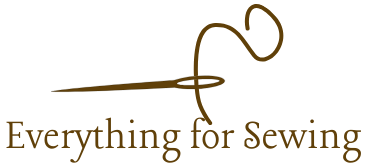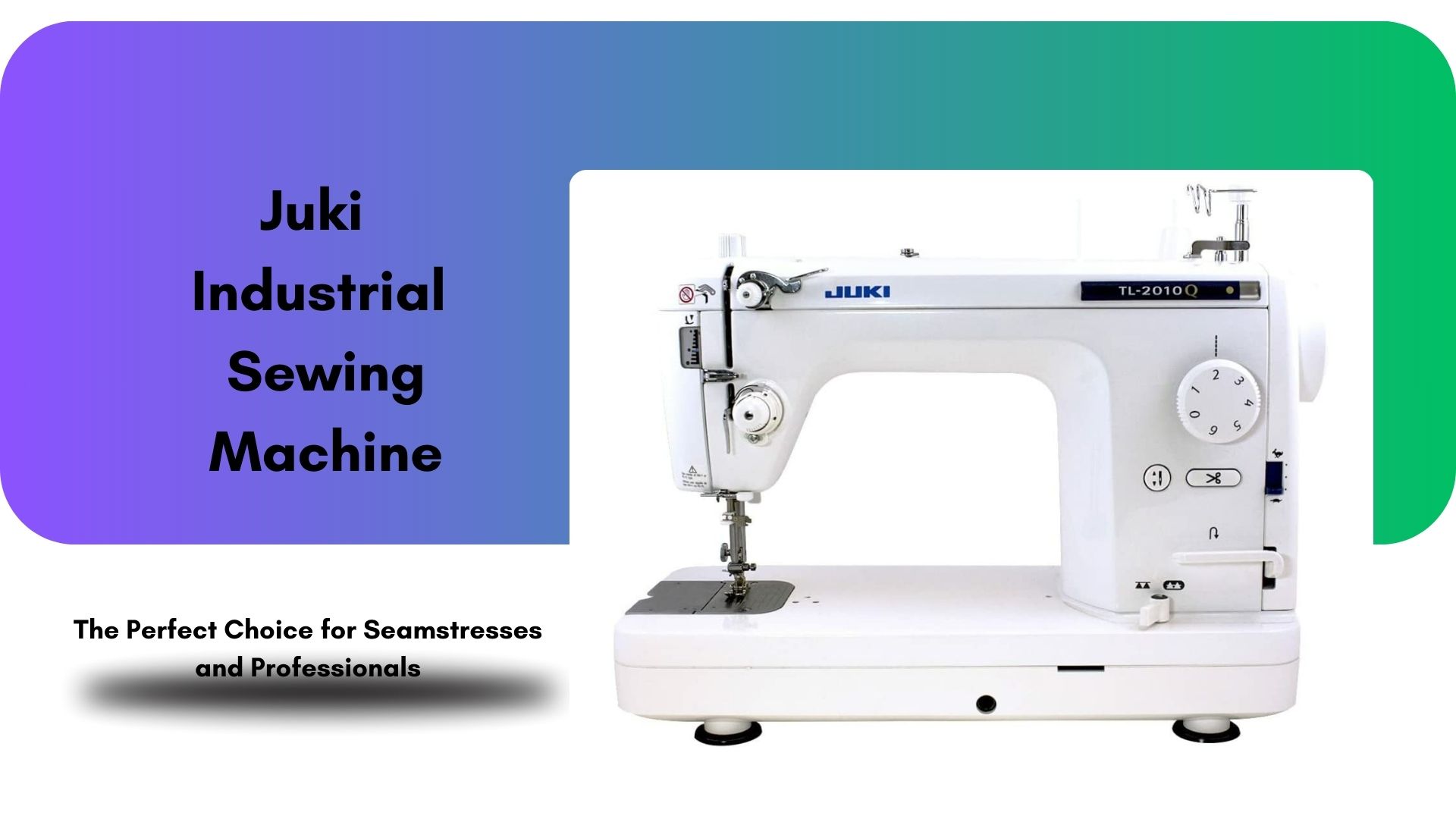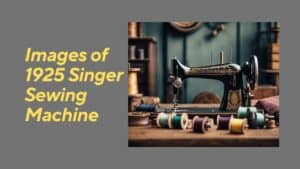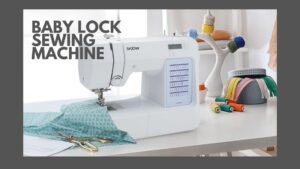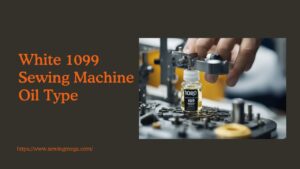Sewing machines play a critical role in many industries, from fashion to upholstery.
Industrial sewing machines, in particular, are built for high-volume production. They can sew through thick fabrics and operate at faster speeds than standard home machines.
These machines are designed for durability and efficiency, making them a popular choice for businesses that need reliable equipment.
Among the various brands available, Juki industrial sewing machines stand out for their quality and performance.
Juki has a strong reputation for creating machines that cater to both large factories and small workshops. They offer a range of models suited for different tasks, including straight stitching, zigzag stitching, and specialized sewing.
When looking to purchase an industrial Juki sewing machine, it’s important to consider a few key factors.
Pay close attention to the machine’s capabilities, such as stitch types and speed, as well as its build quality and ease of use.
These elements can significantly affect productivity and the quality of the work produced.
Knowing what each model offers helps in making the right choice for our needs.
We spent considerable time reviewing various models to find the Juki industrial sewing machines that best meet the demands of different sewing projects.
Contents
- 1 Table of Contents
- 2 Best Juki Industrial Sewing Machines
- 3 Buying Guide
- 4 FAQs:
- 4.1 What makes the Juki industrial sewing machine stand out?
- 4.2 Is a Juki industrial sewing machine suitable for beginners?
- 4.3 What types of fabrics can a Juki industrial sewing machine handle?
- 4.4 How do I maintain my Juki industrial sewing machine?
- 4.5 Where can I buy a Juki industrial sewing machine?
- 4.6 What is the average cost of a Juki industrial sewing machine?
- 4.7 Can a Juki industrial sewing machine be used for quilting?
Table of Contents
Best Juki Industrial Sewing Machines
We all know finding the right sewing machine can be a challenge. That’s why we’ve put together a list of the best Juki industrial sewing machines.
Whether you’re a beginner or a seasoned pro, these models will help you achieve high-quality results on your sewing projects.
Juki DDL-8700H Sewing Machine

This is a solid choice for anyone looking to handle medium to heavy materials quickly and efficiently.
Pros
- Fast stitching speed of up to 5500 stitches per minute
- Large arm space for bigger projects
- Robust construction ideal for industrial use
Cons
- Assembly is required, which needs a skilled mechanic
- Doesn’t include the walking foot mechanism
- Manual is not provided, which may create some confusion
Using the Juki DDL-8700H has been an interesting experience.
We noticed how quickly it sews through various fabrics, making large projects feel manageable.
It has an impressive maximum sewing speed, allowing us to work efficiently.
The spacious 11-inch arm is perfect for larger quilts, making it a great tool for those bigger tasks.
However, it’s important to mention that the machine comes unassembled in three separate boxes.
This means we had to rely on a mechanic for setup. It was a bit of a hassle, especially since the walking foot mechanism is sold separately. Without it, some sewing styles may be limited.
Another thing to keep in mind is the lack of a user manual.
Although there are plenty of videos online that guide through the setup process, having official documentation would have simplified things.
Overall, it’s an excellent machine for serious sewing needs, but be ready to tackle the assembly process yourself!
JUKI TL-2000Qi Sewing Machine

This JUKI industrial sewing machine is a great choice for quilting and apparel.
Pros
- Quick at 1500 stitches per minute.
- Bright LED lights for better visibility.
- Includes an extension table for larger projects.
Cons
- Limited to straight stitching only.
- No speed control for beginners.
- Can be heavy to move around.
We’ve had the chance to use the JUKI TL-2000Qi, and it feels solid right out of the box.
The sewing machine has a sturdy aluminum body that gives it a durable feel, making it perfect for heavy-duty tasks.
The speed of 1500 stitches per minute allows us to complete projects quickly, whether we’re making clothes or quilting.
One feature we really like is the automatic needle threader.
It saves us time and frustration, especially during larger projects.
The LED lights are bright and help us see our work clearly, which is a big plus when working with dark fabrics.
The included extension table provides a wider workspace, making it easier to handle big quilts or other large items.
While it has a lot of benefits, there are a few drawbacks to consider.
The machine only does straight stitches, so if you need decorative options, you might be disappointed.
Also, there is no speed control, which might make it tricky for beginners.
Finally, at 25.4 pounds, it can be a bit cumbersome to move if we need to change our workspace.
If you’re looking for an industrial sewing machine that can handle quilting and heavy fabrics, the JUKI TL-2000Qi is worth considering. It’s reliable and powerful, perfect for serious projects. Check it out here!
Juki DDL-8700-H Industrial Sewing Machine

We believe this Juki industrial sewing machine is a solid choice for those in need of a reliable heavy-duty machine.
Pros
- Super fast sewing speed up to 4,000 RPM.
- Handles both thin and thick fabrics with ease.
- Comes with all necessary tools and accessories for assembly.
Cons
- Requires assembly, which can be a bit tricky.
- No walking foot feature.
- Some users have reported initial defects upon delivery.
Using the Juki DDL-8700-H has been a game-changer for our sewing projects.
It runs smoothly and quietly, even when working with heavy fabric.
The max speed is impressive, allowing us to complete tasks much faster than before.
The stitches come out neat and professional, no matter the thickness of the material.
While we love its performance, the assembly was a hurdle.
It comes unassembled, and although we managed to do it ourselves, having a drill and some patience was necessary.
The instructions could use some clarification, but once it’s set up, it becomes very intuitive.
Another important note is that it does not include a walking foot mechanism, which can be a disappointment for some users.
Overall, the Juki industrial sewing machine is excellent for those looking to level up their sewing game without breaking the bank.
Juki DDL-8700

This sewing machine is a solid choice for those looking to step up their sewing game.
Pros
- Smooth stitching on light to medium weight fabrics
- Fast sewing speed of up to 5500 stitches per minute
- Easy to assemble with all parts included
Cons
- No instructions provided, which makes setup tricky
- Clutch motor can be quite noisy
- Minor scratches may be found on the unit upon arrival
Using the Juki DDL-8700 has been a great experience for us.
Right out of the box, the machine felt sturdy and well-built.
It’s perfect for our needs, as we often sew light to medium weight fabrics.
The stitching is smooth, and we love the speed it offers.
With a max speed of 5500 stitches per minute, we can get our projects done quickly.
Setting it up was a bit of a challenge since there were no instructions included.
We found helpful videos online to guide us, so it wasn’t too difficult in the end.
Once everything was assembled, we appreciated how the machine operates with minimal vibration and noise, making our workspace more comfortable.
One thing to keep in mind is that the clutch motor does produce some noise, which might not be ideal for everyone.
Also, we noticed a few minor scratches and blemishes on the table, but they don’t affect the performance of the machine.
If you’re looking for a reliable industrial Juki sewing machine, this model is definitely worth considering.
Juki 2010Q Sewing Machine

This machine is a solid choice for anyone looking to enhance their sewing or quilting experience.
Pros
- Heavy-duty and durable build.
- Easy to use with an automatic needle threader.
- Spacious work area great for larger projects.
Cons
- Portability may be difficult due to its weight.
- Some users run into minor setup issues initially.
- Limited in features compared to more advanced models.
We recently tried the Juki TL-2010Q, and it impressed us with its solid performance.
The aluminum body cuts down on vibration, making our sewing projects smoother and quieter.
Whether we’re working with heavy fabrics or multiple layers, this machine handles everything with ease.
The automatic needle threader is a game changer.
No more squinting to find the needle’s eye. It saves us time and makes sewing feel less frustrating.
Plus, the large sewing bed allows us to quilt bigger items like king-size blankets without feeling cramped.
While this industrial Juki sewing machine is heavy, we found that it was manageable when using a rolling carrier.
It’s not the lightest machine out there, but the strength and stability are worth the trade-off.
All in all, if you want a reliable workhorse for sewing and quilting, this machine is definitely a great investment.
Juki DDL-8100 Sewing Machine

We definitely think the Juki DDL-8100 is a solid choice for anyone looking to invest in an industrial sewing machine.
Pros
- Fast stitching capabilities at up to 4500 stitches per minute.
- Smooth operation thanks to the energy-saving DC servo motor.
- Comes with essential accessories to get started right away.
Cons
- Assembly can be a challenge without clear instructions.
- Some accessories may require extra handling time to set up.
- A few users faced issues with missing parts upon delivery.
When we first got our hands on the Juki DDL-8100, we were impressed by its speed and power. The capability to reach 4500 stitches per minute allows us to finish projects quickly, which is essential in a busy workspace.
The servo motor runs quietly, making it perfect for long sewing sessions without disturbing anyone.
One thing we noticed was how the machine comes unassembled. While it did include essential accessories, putting everything together took some time, and the lack of clear instructions made it a bit tricky.
We recommend checking for online assembly videos which helped us a lot when we were setting up.
Once we got it running, the performance was fantastic. The machine handled various fabric types smoothly and the stitch quality was impressive.
Overall, we believe the Juki DDL-8100 is an excellent investment for those serious about sewing with an industrial machine.
Juki DDL-5550 LockStitch Sewing Machine

We recommend considering the Juki DDL-5550 for your sewing projects due to its speed and reliable performance.
Pros
- High sewing speed of up to 5,500 stitches per minute.
- Solid construction made in Japan, ensuring durability and quality.
- Includes essential accessories like a task chair, table, and extra needles.
Cons
- Assembly instructions could be clearer and might require extra effort.
- Some parts, like the table, may need modifications to fit properly.
- A few users experienced issues with the needle size and bobbin.
Using the Juki DDL-5550 has been a satisfying experience. This machine really stands out with its impressive speed. We found that it handles light to medium-weight fabrics without a hitch, making it great for various sewing tasks.
The automatic lubrication feature also keeps the maintenance low, which is a huge plus for those of us who want to spend more time sewing and less time worrying about upkeep.
When we set up the machine, the quality of the build was noticeable right away. It feels sturdy and reliable. The inclusion of a comfortable task chair is a bonus, allowing us to work for longer periods without discomfort.
However, we did encounter some hiccups during assembly. The instructions were a bit lacking. Luckily, there are plenty of helpful videos online that guided us through the setup process.
A downside we experienced was the table not fitting perfectly with the machine, requiring some modifications. Some users also reported trouble with needle sizes and bobbin settings, which is something to keep in mind.
Buying Guide
When choosing a Juki industrial sewing machine, we should think about key features that match our needs. Here are some important points to consider:
Purpose
We need to know what we plan to sew. Are we making clothing, upholstery, or quilts? Different machines work better for different tasks.
Types of Machines
There are various types of industrial Juki sewing machines. We can look for:
- Straight Stitch Machines: Great for basic sewing.
- Zigzag Machines: Good for stretch fabrics.
- Overlock Machines: Ideal for finishing edges.
Features to Look For
We should look for features that will make our sewing easier:
- Speed Control: Helps us manage how fast we sew.
- Automatic Thread Cutter: Saves time and effort.
- Adjustable Presser Foot: Useful for different fabric thicknesses.
Budget
Setting a budget is crucial. We can find quality machines at different price points. Knowing our budget helps narrow down our options.
Reviews and Recommendations
Reading reviews can guide us to the best choice.
We can also ask others in the sewing community for their opinions.
By considering these factors, we can choose the best industrial sewing machine Juki that fits our needs and helps us succeed in our sewing projects.
FAQs:
What makes the Juki industrial sewing machine stand out?
The Juki industrial sewing machine is renowned for its reliability, high-speed stitching, and durability. It’s a preferred choice for professionals due to its precision and ability to handle heavy-duty fabrics effortlessly.
Is a Juki industrial sewing machine suitable for beginners?
While the Juki industrial sewing machine is designed for professionals, many models come with user-friendly features that make it accessible for beginners aiming to work on advanced sewing projects.
What types of fabrics can a Juki industrial sewing machine handle?
The Juki industrial sewing machine is versatile and can handle a wide range of fabrics, including heavy-duty materials like denim, leather, and canvas, as well as delicate fabrics like silk and chiffon.
How do I maintain my Juki industrial sewing machine?
Regular maintenance of your Juki industrial sewing machine involves cleaning, oiling, and timely servicing. Always follow the manufacturer’s guidelines for best results and prolonged performance.
Where can I buy a Juki industrial sewing machine?
You can purchase a Juki industrial sewing machine from authorized dealers, online marketplaces, or directly from the Juki website. Be sure to choose a reliable source to ensure authenticity and warranty coverage.
What is the average cost of a Juki industrial sewing machine?
The cost of a Juki industrial sewing machine varies depending on the model and features. Prices typically range from $500 to over $2,000.
Can a Juki industrial sewing machine be used for quilting?
Yes, many Juki industrial sewing machine models are suitable for quilting. They offer features like extended tables, high-speed stitching, and excellent feed systems for precision quilting.
